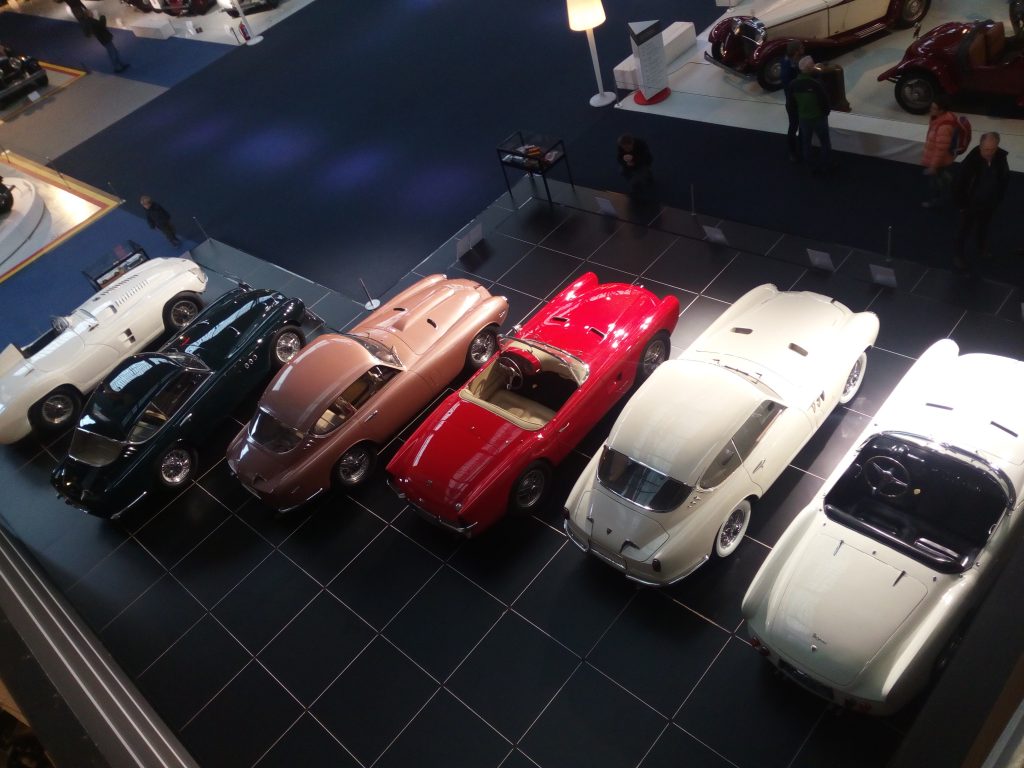Spain’s Pegasus sports car is no myth
To see modern Spain's flourishing design and innovation landscape today, it is hard to imagine a time when it was anything different. But have you ever heard of the Pegaso (Pegasus) Z-102 sports car?

Thursday 6 December 2018
Franco's Spain was known for its fascist-leaning brand of nationalism which stifled dissent and irked the international community. But thankfully it failed to completely coerce cultural expression. Spanish artists, writers and designers of the time (1939-1975) kept the fires of creativity burning inside and outside the ‘Spanish State', as it was then known, long after the civil war ended and General Franco's dictatorship took hold. Artists like Pablo Picasso, Joan Miró and Salvador Dalí; writers like Carmen Laforet and Nobel Laureate Vicente Aleixandre; sculptors like Paul Serrano, and film-makers like Juan Antonia Bardem.
“[In] creating the world's memory of the Spanish civil war, the pen, the brush and the camera wielded on behalf of the defeated have proved mightier than the sword and the power of those who won,” writes Eric Hobsbawm in The Guardian about the “War of ideas [that] united a generation of young writers, poets and artists in political fervor”.
One of the forgotten names who managed to work within the system during this culturally challenged period was Wilfredo Ricart, an automotive engineer and designer for Pegaso, a Spanish automotive manufacturer better known for its hardy trucks, tractors and military vehicles. Ricart's time at Alfa Romeo, where he worked alongside Enzo Ferrari as chief engineer, must have left a creative itch that needed scratching at his new employer, the state-owned Enasa, which made Pegaso vehicles. In the 1950s, he set out to build a ridiculously elegant sports car to rival the likes of Jaguar, Aston Martin and Ferrari. And in a way he did.
Within a couple of years Pegaso was delivering its first Z-102s as soft and hard-top designs. According to Road and Truck magazine, this sporty little road warrior is the “best Spanish sports car you've never heard of”. Incredibly innovative for its time, it came with a “dry-sump quad-cam V8 and a rear-mounted trans-axle long before such things were commonplace”. And the bodywork was the product of several prominent coach-builders, including Touring and Saoutchik. The compact V8, which came in 2.8 and 3.2 litre versions, gave it grunt and a record top speed for production cars sold in 1953 of 250 km/h. Yet despite galloping beauty, speed and innovation on display, only between 80 and 100 were ever made.
Road and Truck's Chris Perkins explains: “The Z-102 cost twice as much as an equivalent Ferrari of its day and around four times as much as a Jaguar XK120. The Spanish government killed the Pegaso sports car once it realised how much it cost to make and sell.”
The fact that Spain was an international pariah in the 1950s, with its closed economy run by family patronage and military interests, clearly would not have helped Ricart keep his beloved sports cars aloft. If he had waited another 10 years to launch the Z-102, until after Spain's New Economic Order of market stabilisation and liberalisation was introduced mid-1959, things may have been very different. Today, enthusiasts only get a glimpse when these forgotten flying horses land somewhere public like the current exhibition of more than a dozen at Brussels' Autoworld. A rare thing indeed.


